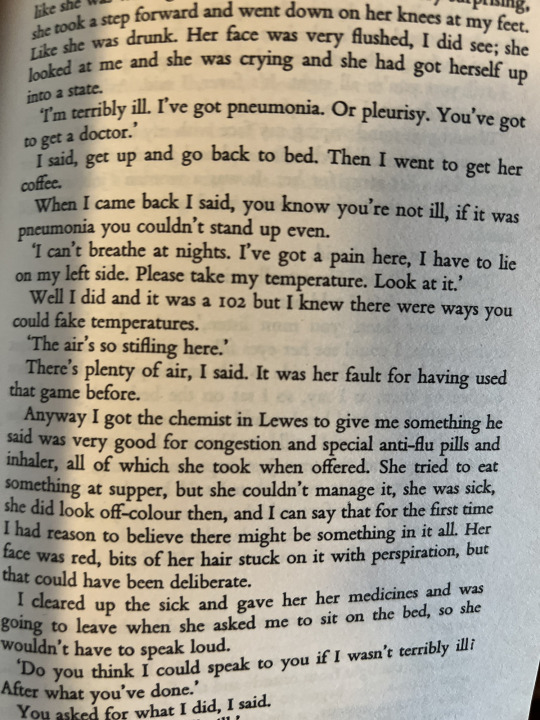#um i think this is one of the only places where my patriotism exists sadlkfjasd
Note
Hi Pia! I was rereading one of your works and was wondering if you’d maybe wanna discuss the quotations for dialogue? I know both are correct, but I just got a little curious about it the usage of ‘spoken words’ vs “spoken words” and your preference for one. Usually when I’ve seen the ‘spoken words,’ it’s been for older works.
Hi anon,
My preference is that I'm Australian, I learned writing at university many many years ago now (I am an old), and I was taught correct Australian grammar there! And while I still make mistakes on some things, dialogue isn't it.
Some people use the US "" instead of the Australian '' - and that's now okay simply because so many people were doing it, the editors of Australia were like 'fuck it, you can do it' (with exceptions) - but like, most of the Australian copies of international books that I have, actually don't use " " for dialogue at all.
I'm going to get some examples, because this is something you've likely never seen, because publishing houses change the grammar based on the country. This means that books that have double quotation marks everywhere else in the world for dialogue, have single quotation marks in Australia if you're picking them up in Australia or they've been published through most Australian publishers. Because buying books is more global now, Australians will likely have a mix of double quotations and single quotations books. Many Australians don't even realise there's a difference, they're so used to it.
Here's an Australian book:

(Skins by Sarah Hay)
So that makes sense for an Australian book by an Australian author.
What about the classic The Collector by John Fowles. Surely, that not being an Australian book, that'd have double quotation marks right?
Not if it was published here:

What about something a little more recent? Like The God of Small Things by Arundhati Roy?

I'm not sure how to explain it beyond: 'Literally almost every book we pick up here that was published here does this, and it's not a like quirky preference, it's literally what we grew up seeing and reading. To us, double quotation marks is unusual and seems more 'quirky'.'
This is less common now as an attitude simply because of globalisation and the internet existing. But for most of my life, buying books meant only seeing dialogue like this. Right up until I was in the 30s, I think. Purchasing books online changed that, and people who grew up with the internet from the very beginning are going to be more used to seeing double quotation marks.
But many Australian publishers will still insist on correct Australian grammar with preference given to Australian grammar.
Our grammar is quite strange, and sort of a mix between US and UK but with some unique aspects of which you've probably noticed the single quotation marks is one.
That's because Australian grammar is built on journalism, and anything that saved space in a newspaper was prioritised. So Australian grammar eliminates double spaces at the end of periods. It eliminates double quotations because they take up extra space. There are dash rules designed to eliminate space that an article might take up.
And you know, I'm quite proud of that grammar. :D It does get me some heat when I publish something, usually from grammar puritans from the USA, which is why I now just post a blanket 'this author uses Australian grammar so you may notice some departures with dialogue grammar' caveat.
Anyway, the reason/s most newer works have double quotations is because a) they're being purchased en masse overseas and that's cheaper than publishing here, b) those Australians are young and have learned to write based on overseas writing, c) they don't know actually know Australian grammar, it's not actually taught well in our curriculums, d) it is just something they prefer, e) they publish with overseas publishers and because they have to edit their works to UK or US grammar anyway, they just adopted it because it's easier that way, f) someone erroneously corrected them for doing the right thing and they changed to another country's dialogue grammar, g) it really is okay to just pick the one you like best now and stick with it, h) some screen readers cannot cope with single quotation marks (which imho, is something screen readers need to address if it means ignoring an entire country's/continent's grammar style).
And finally, here's the Australian Government Style Guide, which still doesn't permit double quotation marks at all in dialogue.
#asks and answers#pia on editing#pia on writing#um i think this is one of the only places where my patriotism exists sadlkfjasd#i'm proud of our grammar#i want it to exist instead of being homogenised into US grammar#and in that sense i do have a preference towards preserving something#especially if it's still working
22 notes
·
View notes